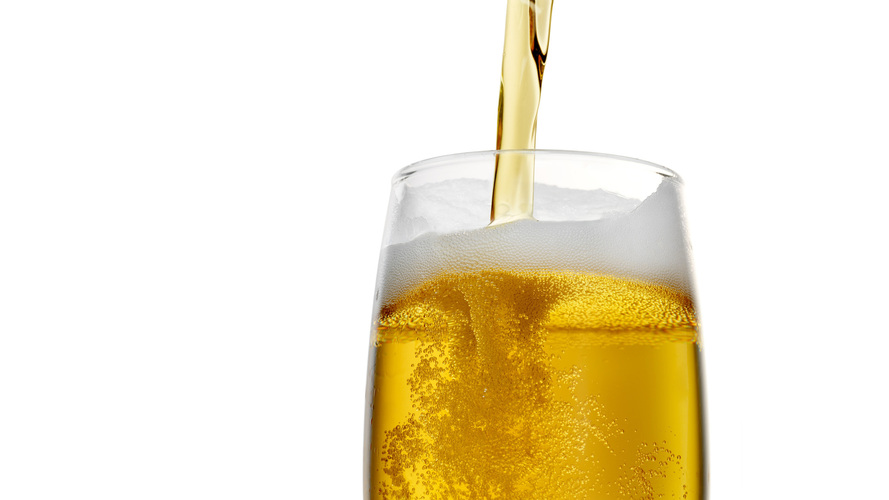One reason that chemists are now discovering arsenic in beer is that testing methods are much more precise than in decades past, Boulton says, detecting low levels of naturally occurring elements that have always been in food products.
Still, the prospect of arsenic in a frosty lager or a rich chardonnay does beg for further exploration.
It turns out that any beer or wine that's clear has been filtered to strain out plant matter, yeast and anything else that would leave a drink looking unappealingly cloudy.
"It's really there for aesthetics," says Tom Shellhammer, a professor of fermentation science at Oregon State University. "People in general will make positive quality associations with clearer beverages."
There are exceptions, he says, like a cloudy Hefeweizen beer. But the notion of a cloudy pinot grigio does lack appeal. "For many beer and wine producers," he says, "clarity is a clear performance indicator."
For centuries, the filter of choice for wine and beer has been diatomaceous earth. It's a beige powder made up of the skeletons of diatoms, tiny algae that lived in oceans many moons ago. Because the diatom fossils have lots of minute holes, they do a great job of filtering liquids — from swimming pool water to pricey champagne.
Arsenic in beer hit the news this week when Mehmet Coelhan, a researcher at the Weihenstephan research center at the Technical University of Munich, reported at a meeting of the American Chemical Society that many of the nearly 360 beers tested in Germany had trace amounts of arsenic.
A few were found to have more than 25 parts per billion of arsenic. That's twice the 10 parts per billion standard for drinking water in the United States.
Germany is proud of its Reinheitsgebot, a 16th-century purity law that demands that beer can be made of only water, hops and malt. Coelhan and his fellow chemists do a lot of work analyzing water and other ingredients for the German beer industry, so they know arsenic wasn't in the water or malt.
But they did find it in the diatomaceous earth. "We analyzed kieselguhr," Coelhan told a news conference at the ACS meeting in New Orleans on April 7, using the German word for diatomaceous earth. "We found high concentrations of extractable arsenic."
But people don't drink as much beer as they do water (or they shouldn't), and there's no U.S. or European standard for arsenic in foods. That has become an issue with arsenic in rice, which has been found in some products in the United States, including toddler formula and energy bars. So there's no way of knowing if there's enough arsenic in beer to pose a health risk.
The German researchers' findings square with a much smaller 2008 study of Italian beers, which found similar levels in some brews, as well as cadmium and lead, which are also poisonous. A few other studies have found arsenic in wine.
The wine industry has been moving away from using diatomaceous earth for decades, says John Giannini, a lecturer and vintner for the University of California, Fresno — not because it contains arsenic, but because it contains silica, so breathing it "can do damage to your lungs," he says. He has switched largely to cellulose-fiber filters to reduce the risk to students.
The downside, Giannini says, is that the cellulose can give the wine a bit of a papery taste. "What I'm doing is blending the two, to minimize the paper taste and minimize the use of DE."
Other options for filtering wine and beer include polyethylene filters, centrifuges and cross-flow filtration, which doesn't use a filter medium at all.
Washing diatomaceous earth before use reduced the amount of arsenic it released, Coelhan says, but that method hasn't been tested commercially.
Indeed, scientists have some work to do to find out if diatomaceous earth really is causing problems with arsenic in beer and wine.
"The proper study would be to compare unfiltered beer to filtered beer, beer filtered using diatomaceous earth, beer filtered using perlite, beer filtered using cross-flow filtration," says Charlie Bamforth, a professor of brewing science at the University of California, Davis. He's skeptical that diatomaceous earth could be causing troubling levels of contamination.
Abandoning diatomaceous earth altogether won't guarantee there's no arsenic or other heavy metals in beverages, UC Davis wine expert and chemical engineer Boulton told The Salt. "The sense that if you didn't use diatomaceous earth, there would be no heavy metals in beer at all is a little out of touch with nature."
Copyright 2013 NPR.
